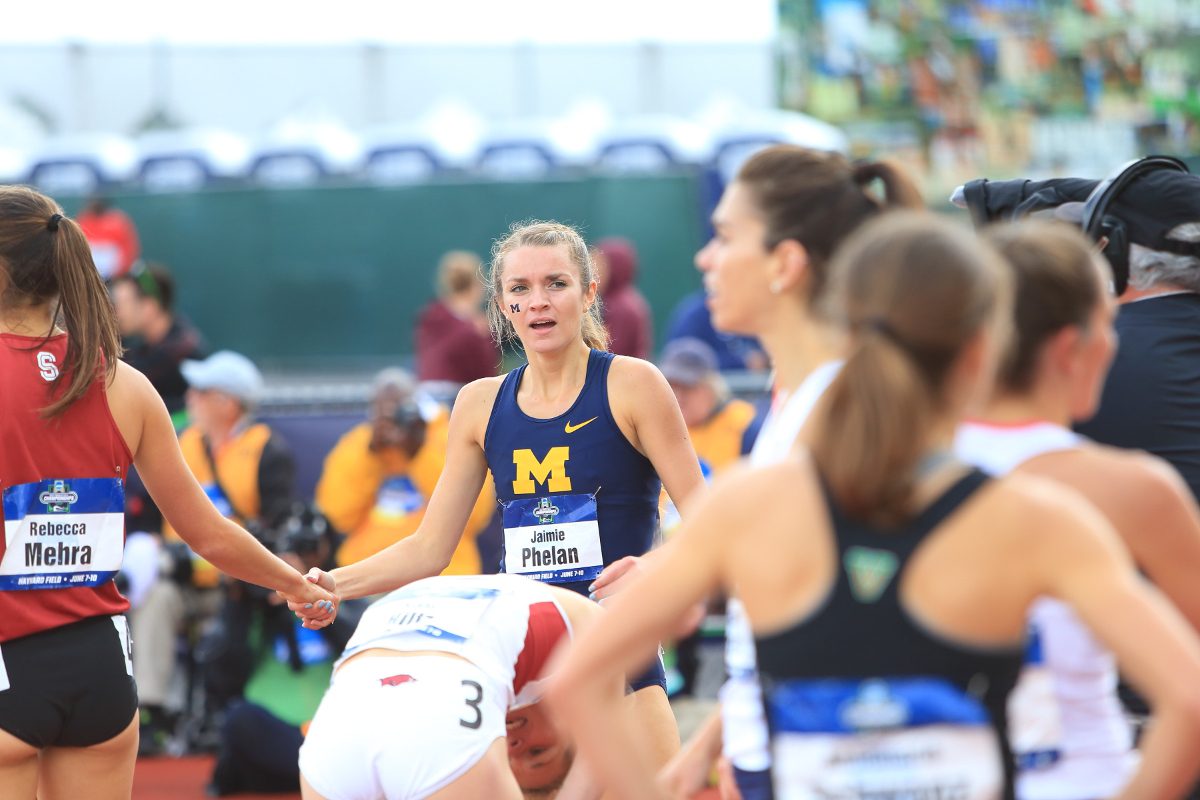NCAA champion Jaimie Phelan on her mental health journey and the power of a team
"A running team is the best kind of team you can be on."

It wasn’t until her second semester in her freshman year at the University of Michigan that Jamie Phelan realized she needed professional help. The Canadian athlete, who’s the 2017 NCAA 1,500m champion, was sexually assaulted at the age of 15, resulting in post-traumatic stress disorder and depression that Phelan didn’t recognize as such for a long time.
https://www.instagram.com/p/BrHOLr2nrhi/
“The running community has been so so supportive, both in high school and university,” Phelan says. The 1,5000m runner describes nearly three years of denial, where she experienced both psychological and physical symptoms that she couldn’t identify. Through the support of teammates in Michigan, she became comfortable enough to speak about her experience. “I’ve completely opened up about my mental health, and for the longest time I was so certain that I didn’t ever want to write about it or put this in a video, and it was almost a shock to me that I ended up feeling very comfortable with talking about it.”
RELATED: UVic runner publishes depression story in Globe and Mail
Running is categorized as an individual sport, but when you scratch the surface you realize that it’s anything but. “Running is the best of kind team you can be on,” says Phelan. On our cross-country team at Michigan we’d have our matching ribbons in our hair, and during the race you’d look ahead for the ribbons. That would let you know where your teammates were. Our job was to catch ribbons. As soon as you caught your teammate, you’d slap hips and stick like glue. We were sticking together and getting through the race together. Those little things make you so much stronger as a team, both in running and in life. My teammates are my lifelong friends.”
https://www.instagram.com/p/BpNz5ybH-2l/
RELATED: Biggest breakthroughs in Canadian running in 2017
Because Phelan spent so much time with her team, they were able to help her navigate her mental health journey. “Had it not been for running and for my teammates, I think it would’ve taken me longer to talk about this. Being with my teammates every single day, you go through so much on a daily basis, that you can sense when someone is off or when something is up. It’s so important to reach out to someone if you notice something going on. It may be something that is bugging them a little bit, but having that support of a team can mean so much.”
https://www.instagram.com/p/Bnn7leaHMIK/
Phelan now uses mindfulness and imagery before every race to help her stay positive and present. “If I’m not feeling present, I’ll point out little things that are around me. I’ll name objects or people. This brings me back into the moment and helps me remember that I’m here and I’m racing. It quiets the negative thoughts. I want race day to feel as effortless as possible.” One week out from the race Phelan will start going through every step of race day, from waking up to stepping on the start line. “I’ll imagine myself packing my bag, warming up, and on the start line. There’s three parts of the race I usually imagine. There’s the start line, the middle of the race which is the toughest part, and then I’ll imagine the end.”
In terms of her goals for the future, Phelan is taking it day by day. “After I won NCAAs, I developed a lisfranc ligament sprain in my right foot. That took me out for a good 11 months, and now I’m finally feeling like myself again.” She continued, “These next two years are big in the running world. My dream is to represent Canada at Worlds or the Olympics, but for now the goal is to stay healthy. I’m looking to be healthy as a whole person and take things one day at a time.”


